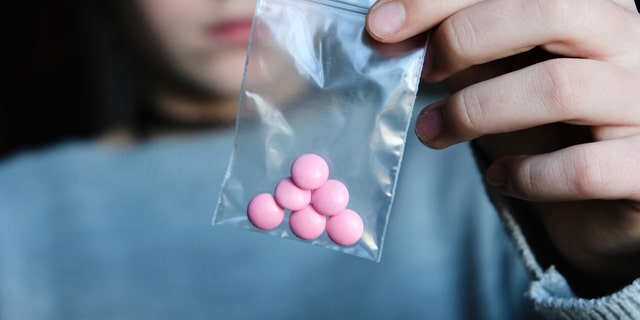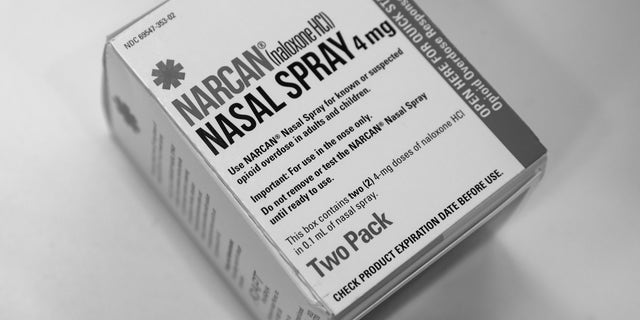Parents prepping for back-to-school time are urged to talk to kids about drugs: ‘Far-reaching implications’
With a new school year on the horizon, it’s a critical time for parents and caregivers to talk to kids and teens about the risks of drug use, experts say.
At least one in eight teens reported abusing an illicit substance in the last year, according to data from the National Center for Drug Abuse Statistics.
Among eighth graders alone, drug use increased by 61% between 2016 and 2020 — highlighting the need for awareness and intervention at a young age.
EXCESSIVE SOCIAL MEDIA USE HAS MANY OF THE SAME EFFECTS AS SUBSTANCE ABUSE, SAYS EXPERT
“Open conversations about drugs can help deter children from trying them in the first place,” Chris Tuell, clinical director of addictions at the Lindner Center of Hope in Cincinnati, Ohio, told Fox News Digital in an interview.
“When kids are well-informed, they are more likely to resist peer pressure and make healthier choices.”
Addressing drug-related topics also demonstrates that parents care about their children’s well-being and are willing to engage in difficult conversations, which builds trust and strengthens the parent-child relationship, Tuell added.
Fox News Digital spoke to experts about some of the most important things parents should know — and should talk about with their kids — as they head back to school.
Fentanyl can make any drug deadly
Even if a drug seems “less dangerous,” there is always the chance that it is laced with fentanyl, a powerful synthetic opioid that is up to 50 times stronger than heroin and 100 times stronger than morphine, according to the CDC.
Fentanyl is often added to other drugs because it punches up the potency at a lower cost, making it more profitable for the people selling it.
ADDICTION COMPLICATES PAIN MANAGEMENT, BUT NEW GUIDELINES OFFER HELP FOR ‘COMPLEX PATIENTS’
“All illegal drugs currently have a high risk of being cut or tainted with fentanyl,” said Peter Piraino, an addiction specialist from Burning Tree Programs in Dallas, Texas, in a conversation with Fox News Digital.
“This makes the use of any illicit substances a game of Russian roulette with three bullets in the chamber.”
Overdoses due to synthetic opioids like fentanyl were 22 times higher in 2021 than they were in 2013, the CDC reported.
“All illegal drugs currently have a high risk of being cut or tainted with fentanyl. This makes the use of any illicit substances a game of Russian roulette.”
“Fentanyl is now the No. 1 killer of 18- to 50-year-olds,” Piraino said.
“It kills enough people yearly that it would be equal to a jet crashing every day of the year and killing everyone on board.”
It’s also important to remember that drugs don’t always look like drugs, warned Lawrence Weinstein, chief medical officer at American Addiction Centers in Tennessee.

“Counterfeit pills are nearly indiscernible from the medication they’re purporting to be,” he told Fox News Digital. “Simply put, if a medication was not prescribed to them, they shouldn’t take it.”
“It is a very real possibility that a pill they get from a close friend — who would also likely be unaware that they’ve given someone a counterfeit pill — could cause their death.”
Vaping is as harmful as smoking cigarettes
Although vaping is advertised as a “safer” alternative to traditional smoking, studies have shown that e-cigarettes can affect the genetic material in people’s cells the same way tobacco products do, noted University of Central Florida associate professor and researcher Claudia Andl.
HOW TO QUIT VAPING AS THE E-CIGARETTE FAD FIRES UP: 6 SMART STEPS TO TAKE
“Most e-cigarette vapes contain nicotine at a much higher concentration than traditional tobacco products, and they put teenagers at risk for nicotine dependence and addiction,” she told Fox News Digital.
“The biggest concern we have is that nicotine also creates carcinogens, which have the potential to lead to tobacco-associated cancers,” she went on. “Vaping may put a whole generation at risk to develop cancer, not just in the mouth but also the lungs.”
“When kids are well-informed, they are more likely to resist peer pressure and make healthier choices.”
Vaping also causes cavities and gum disease, and can eventually cause teeth to fall out, Andl warned.
“Since e-cigs have only been around for 10 to 15 years, we won’t know for sure what the effects are until it is too late for kids who are vaping now,” she added.
Narcan can save lives
Narcan, a brand of a narcotic called Naloxone that can reverse the effects of an overdose, is now available for purchase over the counter without a prescription.
Most states allow any person to carry the medication, Piraino noted.

“Every student and parent should know how to use Narcan and keep it on their person at all times, and most schools should have it on the premises,” Piraino told Fox News Digital.
If a parent is unsure of whether a school has Narcan, Piraino suggested calling the administration or nursing office, or raising the topic at a school board meeting.
Drug use often tied to mental health
Teens who suffer from loneliness, depression and/or anxiety may be more vulnerable to peer pressure to use drugs, Piraino said.
A child who has become withdrawn and has lost interest in hobbies, friends and social events may be more susceptible, he added.
FENTANYL IS EVEN DEADLIER WHEN MIXED WITH XYLAZINE (OR ‘TRANQ’): WHAT YOU MUST KNOW NOW
Conversations about substance use can often lead to discussions about mental health and coping mechanisms, Tuell agreed.
“Many individuals who develop a substance use problem have a co-existing mental health issue,” he told Fox News Digital. “Parents can help children develop healthy ways to manage stress, anxiety and other emotions.”
Emphasize the health, legal consequences
“Kids need to have an understanding of the legal and health consequences of drug use,” Tuell said. “Parents can help children recognize that drug and alcohol use can have far-reaching implications on their lives.”
In terms of the physical effects, Tuell recommended framing the conversation around health and well-being.

“Discuss the potential negative consequences of drug use on physical and mental health, academic performance, relationships and future goals,” he said.
It’s also important to set clear expectations and establish family rules about drug use, Tuell said, and to make sure the child understands the consequences of breaking those rules.
Tone and approach are important
When discussing the topic of drugs with kids, it’s important to strike the right tone, said Weinstein.
“Authoritatively delivered messages stand a very high likelihood of not being received,” he said. “Fear tactics are not effective. Speak about this topic factually.”
OPIOID DRUGS CAUSE MORE THAN HALF OF YOUNG CHILDREN’S POISONING DEATHS: NEW STUDY
It’s also important for parents to let their children speak, listen to them and validate their thoughts and opinions.
“Make sure your children know that they can come to you regarding mental health issues, like depression and anxiety, so they don’t end up turning to outside sources for medication,” Weinstein said.

“This is certainly a topic that parents should not take lightly, because many don’t fully understand just how easy it can be for their child to make one fatal mistake.”
These conversations should be age-appropriate, respectful and non-judgmental, Tuell said.
He added, “It’s important to create an environment where children feel safe to ask questions and share their thoughts without fear of punishment.”
‘They can always come to you’
Children should seek out professional help from school counselors, doctors, family members or other trusted professionals if they are struggling with drug-related issues, experts agree.
“Kids who feel comfortable talking to their parents are more likely to seek guidance when faced with difficult situations,” said Tuell.
“Let your child know that they can always come to you with questions or concerns about drugs or any other topic,” Piraino.
CLICK HERE TO SIGN UP FOR OUR HEALTH NEWSLETTER
“Foster a non-judgmental and supportive environment.”
There are also many educational resources, books and online materials available to help facilitate these conversations, Tuell noted.
Read the full article Here


